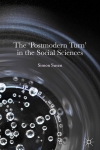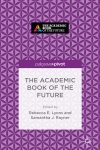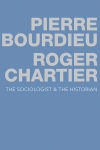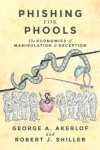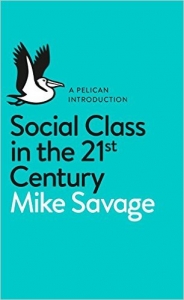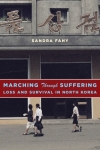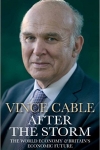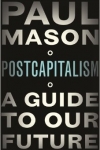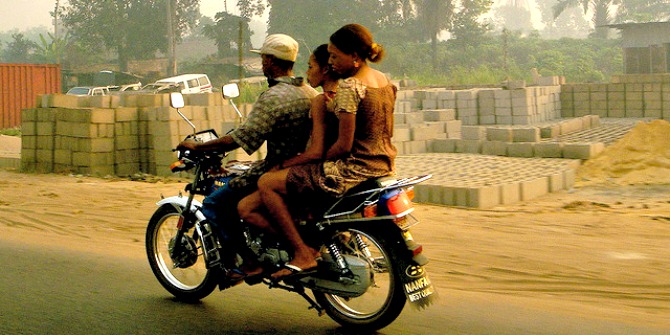 Image Credit: cafepampas
Image Credit: cafepampas
Most Read Book Reviews of November 2015
The ‘Postmodern Turn’ in the Social Sciences. Simon Susen. Palgrave Macmillan. 2015.
Simon Susen traces the epistemological shift from modern to postmodern thought and the influence of this transformation on the social sciences. Sarah Burton admires the comprehensive descriptive accounts of modernity and postmodernism, even if the lack of penetrating critique may be symptomatic of the postmodern perspective Susen sets out to interrogate.
Edited by members of The Academic Book of the Future investigative team, this book presents a short collection of essays by academics, publishers, booksellers and librarians ruminating on the future of the academic book. Leah Tether welcomes its content and physical form for offering an illuminating insight into the unfolding of the project and a reflection of its future valuable contributions to debates over the academic book.
The Sociologist and the Historian. Pierre Bourdieu and Roger Chartier. Polity Press. 2015.
This book marks the first English-language publication of conversations held between the sociologist Pierre Bourdieu and the historian Roger Chartier in 1988, which focused particularly on the disciplines of history and sociology. Canan Bolel praises the collection for offering a frequently witty and engaging insight into the relationship between sociological and historical practice and the construction of academic knowledge.
Nobel Prize-winning economists George A. Akerlof and Robert J. Shiller critique free market dogma through an analysis of the ways that markets utilise tricks and traps in order to ‘phish’ us as ‘phools’. Florian Bon views it as an entertaining and accessible read filled with engaging anecdotes that remind us of the capacity of markets to manipulate and deceive. Listen to a podcast of Shiller’s recent LSE lecture here.
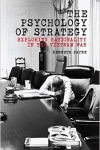 The Psychology of Strategy: Exploring Rationality in the Vietnam War. Kenneth Payne. Oxford University Press. 2015.
The Psychology of Strategy: Exploring Rationality in the Vietnam War. Kenneth Payne. Oxford University Press. 2015.
Kenneth Payne utilises the case study of the Vietnam War to show how psychology affects warfare, including discussion of confirmation bias, social identity and the psychology of fear. The book’s extensive subject matter and effective use of the Vietnam War as an illuminating prism offers an important contribution to the study of decision-making in International Relations, writes Michael Warren.
To mark the launch of Mike Savage’s new book, we recommended 6 Must-Read Books on Class in the 21st Century.
You May Have Missed…
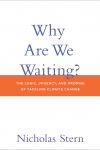 Why Are We Waiting? The Logic, Urgency and Promise of Tackling Climate Change. Nicholas Stern. MIT Press. 2015.
Why Are We Waiting? The Logic, Urgency and Promise of Tackling Climate Change. Nicholas Stern. MIT Press. 2015.
Keeping an eye on COP21? Here, Nicholas Stern expands upon the 2006 Stern Review to offer a timely argument in favour of global action on climate change. As Stern goes beyond economic analysis to discuss the scientific, political, ethical and practical aspects of forging pathways to international cooperation, Chandni Singh welcomes this valuable contribution to the task of tackling the twin challenges of this century: global poverty and climate change.
Sandra Fahy presents the oral histories of survivors of the North Korean famine of the 1990s. Fahy’s narrative outlines the origins and development of the famine, which has hitherto remained a relatively under-examined subject. Isabel López Ruiz welcomes the book for offering a compelling insight into the diverse and complex experiences and memories of survivors as well as the role of language in times of extreme struggle.
Coming Up in December…
Wednesday 2 December 2015 marks the official launch of the LSE Business Review blog. LSE will be bringing together a panel of prominent economists to discuss productivity and the UK’s economic future, including former Business Secretary Vince Cable. Look out for the review of Cable’s new book, After the Storm, on LSE Review of Books!
Following on from his recent lecture at LSE, LSE Review of Books will also be featuring a review of Paul Mason’s Postcapitalism: A Guide to Our Future. Listen to the podcast of Mason’s lecture here.


